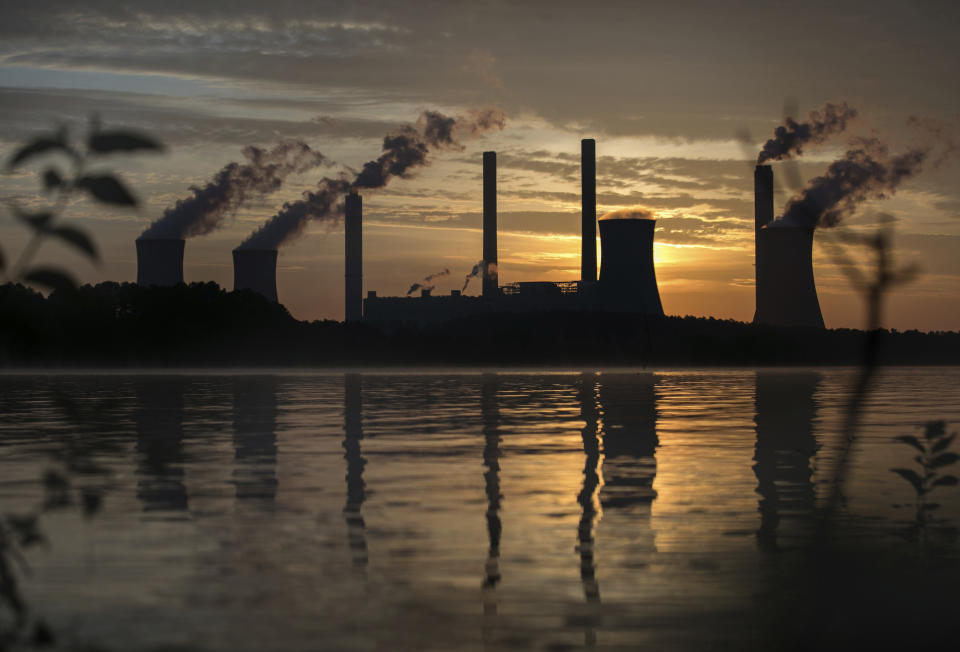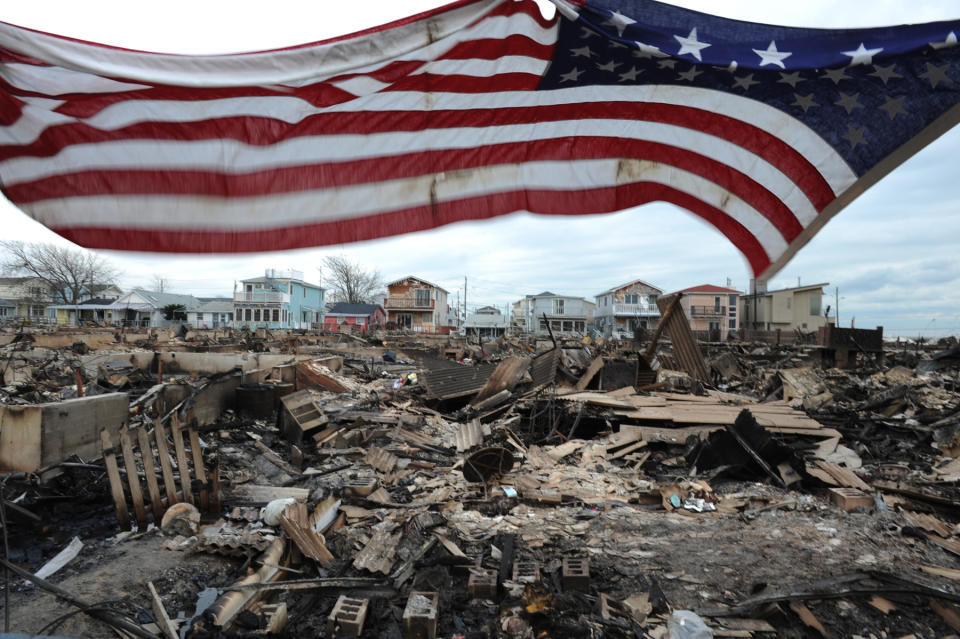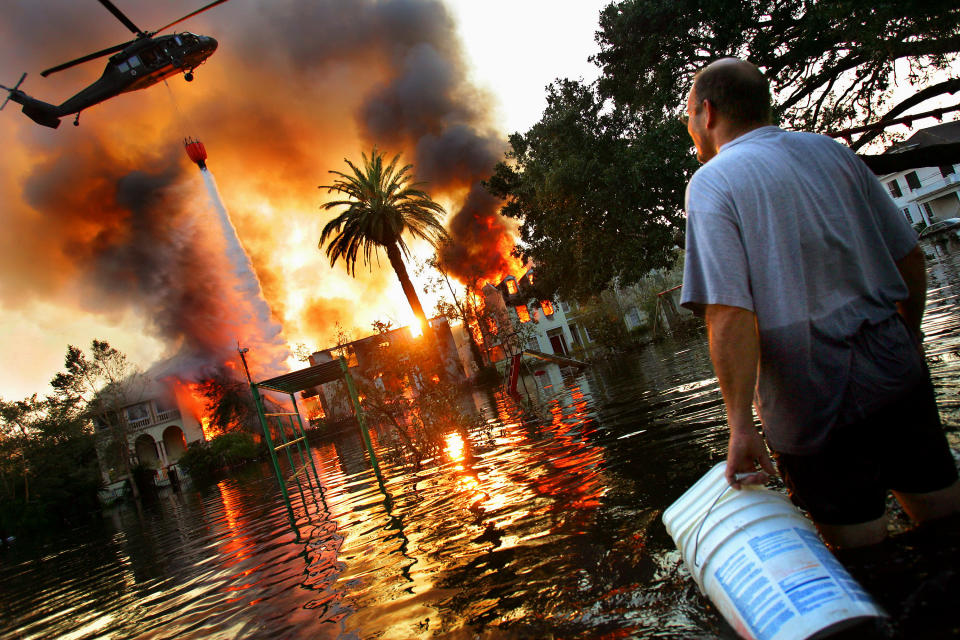Scientists circumvent Trump to spread climate change report
The public feud between President Trump and climate scientists is heating up.
According to climate change experts, the manner in which a climate change report recently spread is just as important for understanding the contemporary political climate as for that report’s scientific findings.
Speaking on the condition of anonymity, one scientist told the New York Times that he and other scientists were sharing the draft of a climate change report put together by scientists from 13 federal agencies because they feared it might be suppressed.
“The legacy of the Trump administration thus far has been to suppress science and delete climate change from reports. [The researchers] are feeling desperation to get this information out to the public before it can be packaged, edited, downplayed and messaged away,” Liz Perera, the climate policy director for the Sierra Club, told Yahoo News.
Peter Frumhoff, the director of science and policy at the Union of Concerned Scientists, pointed out that an earlier draft of the report had actually been publicly available since last December. Still, the scientists were worried enough that it might not be handled correctly so they went to the press themselves.
“The reason it got posted [on the New York Times website] was out of concern — legitimate concern, I might add — that the Trump administration, given its record of misrepresenting or sidelining science, especially on climate change, might do something to subvert, misrepresent or delay the serious science of climate change,” Frumhoff told Yahoo News.
The authors concluded that Americans are feeling the impact of climate change right now, as the average temperature in the U.S. has risen considerably in recent decades. Contradicting obfuscation from the Trump administration, they note that tens of thousands of scientists have conducted thousands of studies documenting the impact of human activities, in particular greenhouse gas emissions, on observable changes in the land and air.
Congress requires the National Climate Assessment once every four years so top decision makers in the country can evaluate the scale and rate at which climate change is affecting the country. The National Academy of Sciences has already signed off on the most recent draft (dated June 28, 2017), but its official release awaits President Trump’s approval.
“The scientists in our country are feeling completely desperate. They are screaming from the mountaintops that we’re in a dire situation,” Perera said.

David Hawkins, the director of climate programs at the Natural Resources Defense Council (NRDC), said there are no surprises in his report and that it merely compiles the scientific literature that’s been published since the prior report in 2014.
“That literature confirms what we’ve understood for several decades now about climate change,” Hawkins told Yahoo News. “This is science knowledge that the National Academy of Sciences told George W. Bush when he was president way back in 2001.”
What did Bush hear that’s been repeated here? That climate change is real and most of the observed increase in temperatures globally has been caused by human activities, most significantly the burning of fossil fuels.
Scientific evidence continues to accumulate every year and continues to point in the same direction.
“We are going to be watchdogging to make sure that the final report isn’t delayed or otherwise monkey-wrenched with by this administration,” Frumhoff said.
Frumhoff, a global change ecologist, noted that the draft report is very strong and reinforces the basic understanding that humans are warming the planet, most notably through the burning of fossil fuels. But he said it’s important to await the final version before drawing conclusions about how it differs from previous reports.
“We expect the federal agencies to do their final sign-off over the next few weeks based on the timeline they’ve set. The final report, which is intended to take account of all the peer review comments, is slated to come out sometime in September,” he said.

Trump, who is currently on a “working vacation” at the Trump National Golf Club in Bedminster, N.J., has been following through on his campaign promises to fight against environmental regulations and strengthen the oil and natural gas industry. He announced his decision to withdraw the U.S. from the Paris Agreement on climate change in early June.
It is no surprise that members of the scientific community would have concerns about Trump’s support for their work. They have already had a fraught relationship. After Trump’s election victory, more than 2,300 scientists (including 22 Nobel Prize winners) signed an open letter urging the president-elect to respect scientific inquiry. In April, scientists and their supporters held a March for Science, which was a departure for many who typically choose not to engage in politics. And the feud between scientists and the Trump administration seems far from over.
Perera said that the contents of the new report are nothing new to people who pay attention to climate science, and especially not to people already suffering from the effects of climate change.
“The reality is that this is not ‘new.’ We’re living with it every day, and the fact that the president would call it a hoax when we have actual climate victims in our country is abominable. Donald Trump still has his head in the sand. It’s gone beyond denialism. It’s cowardice.”
Sen. Brian Schatz, D-Hawaii, released a statement in much the same vein. He said the report confirms what many already know: that anthropogenic climate change is real and that “we need to do something about it.”
“The federal government should not suppress or deny these facts, nor should it try to silence government scientists,” he said. “Instead, our leaders need to come together to raise the alarm and find a way forward. Congress should lead the way, and we can start by looking at carbon fee proposals as part of tax reform.”
When asked about the report Tuesday afternoon, White House press secretary Sarah Sanders said, “It’s very disappointing, yet entirely predictable, to learn the New York Times would write off a draft report without first verifying its contents with the White House or any of the federal agencies directly involved with climate and environmental policy.”
Huckabee Sanders also noted that it had been available online before the Times report and said the White House will not comment on any draft report before its scheduled release date.
On Wednesday morning, the Times issued a correction about “the availability of the report” that attracted so much attention: “While it was not widely publicized, the report was uploaded by the nonprofit Internet Archive in January; it was not first made public by The New York Times.”
A team of more than 300 experts produces the National Climate Assessment with guidance from a 60-member federal advisory committee. It undergoes a strenuous review process that includes federal agencies and the National Academy of Sciences.

Read more from Yahoo News:



